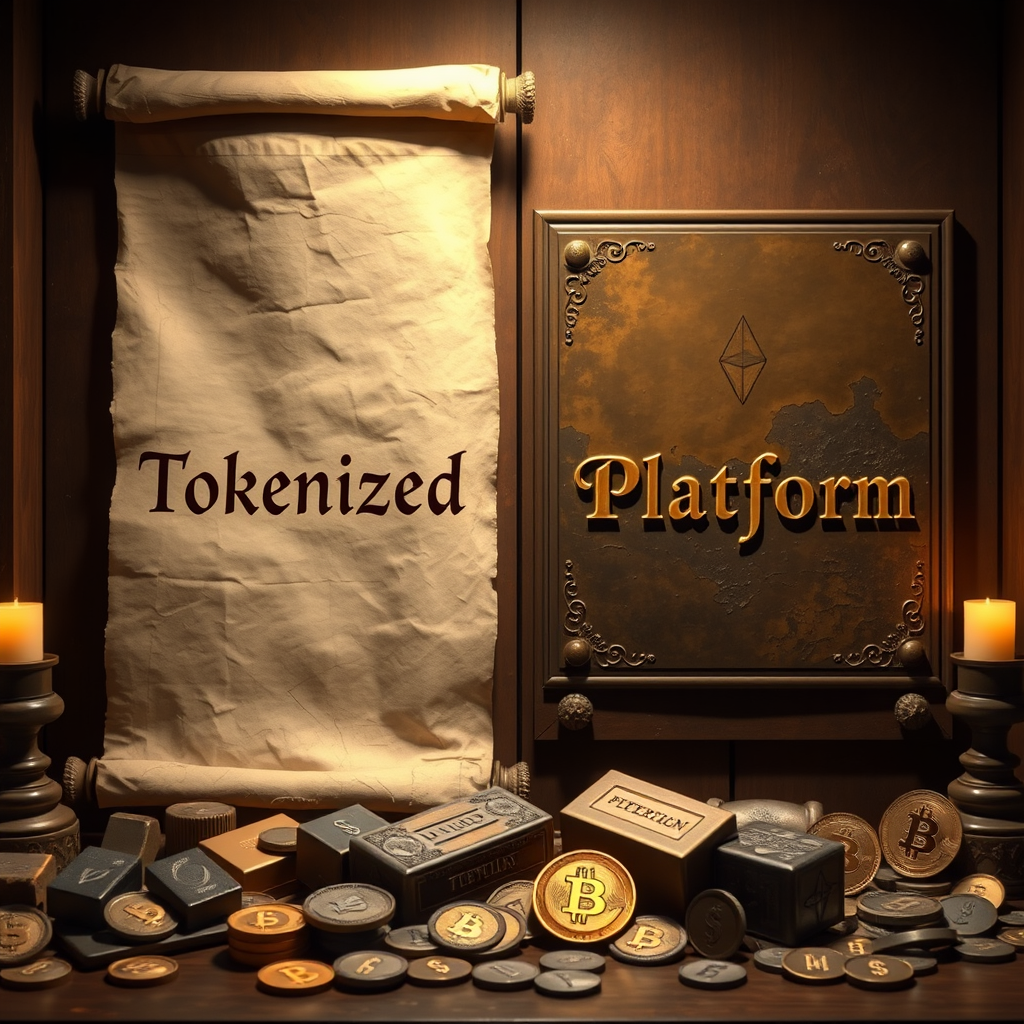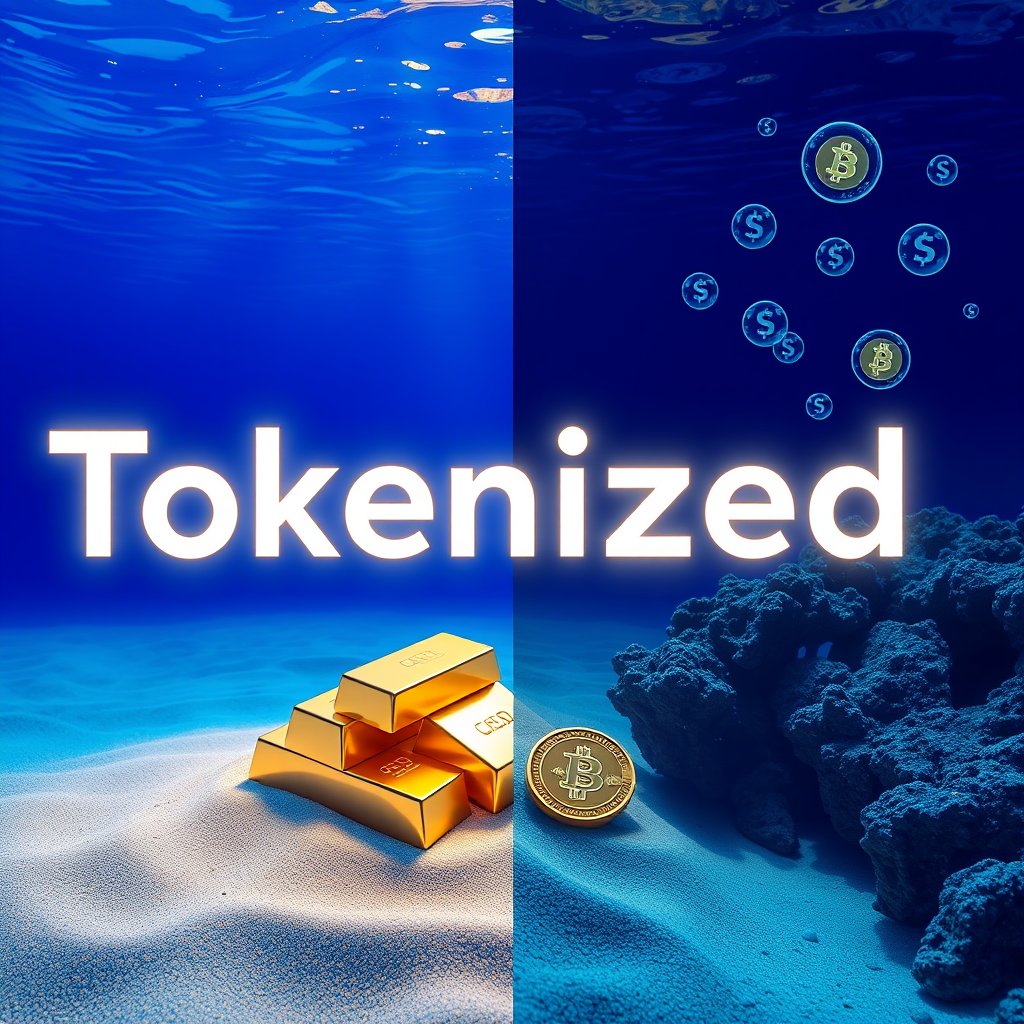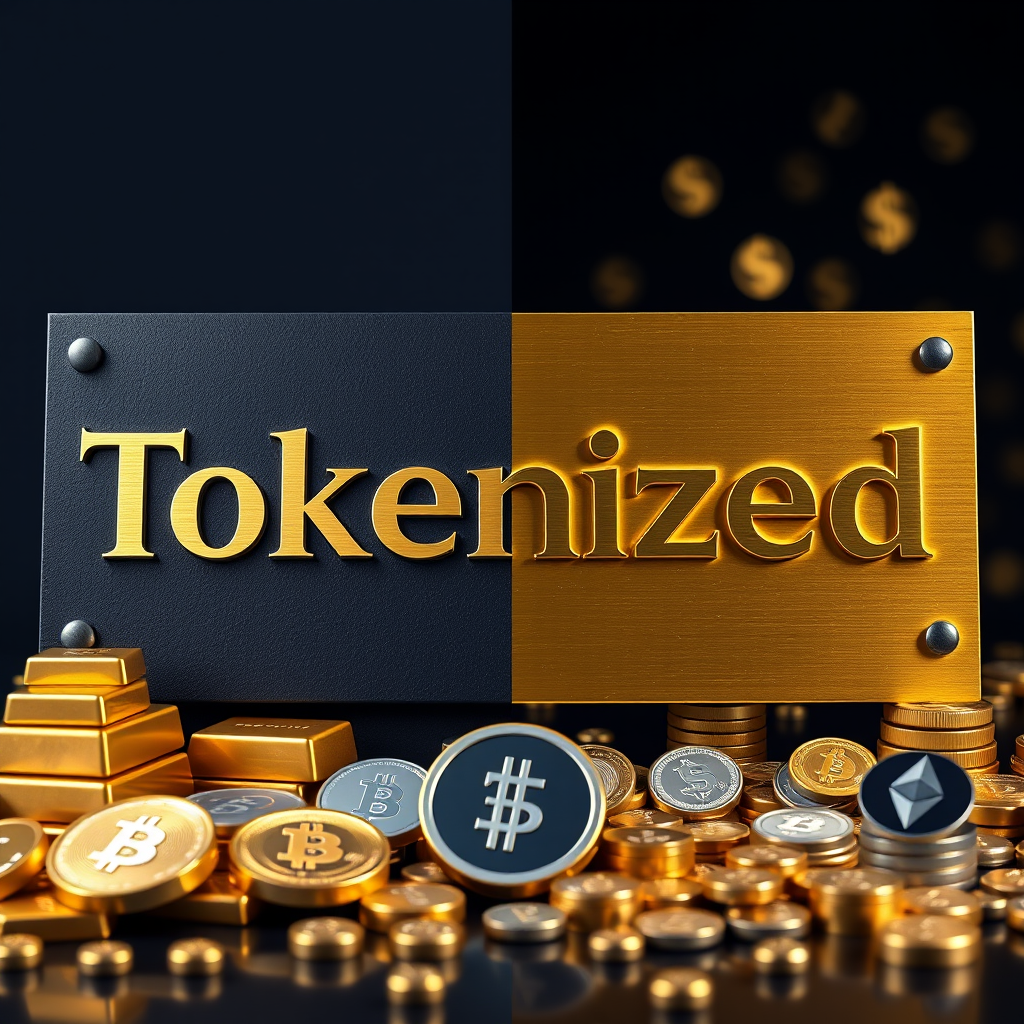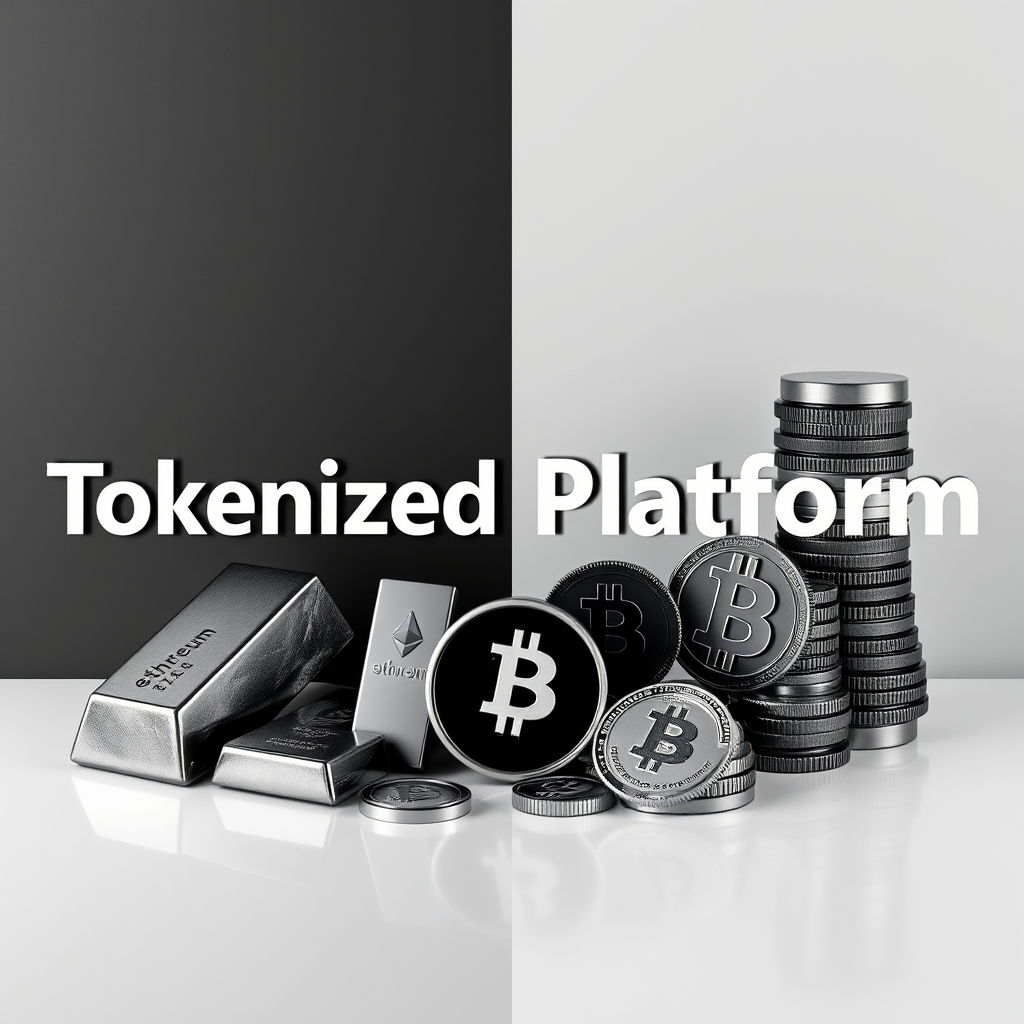Tokenized equity represents a significant shift in the landscape of fundraising, offering a modern twist to traditional equity by utilizing blockchain technology. At the core of this innovation is the concept of transforming shares of a company into digital assets, or tokens, that can be easily traded and managed on a blockchain network. This digital representation of equity allows for greater flexibility, transparency, and efficiency in managing ownership stakes.
In the realm of startups and fintech, tokenized equity opens up new avenues for crowdfunding, enabling companies to reach a global pool of investors without the traditional barriers of geographic restrictions. By using a tokenization platform, startups can issue security tokens that represent a stake in their venture, thereby democratizing access to investment opportunities and providing investors with liquidity options previously unavailable in private markets.
The introduction of tokenized equity also fosters a secure and immutable record of ownership, leveraging the capabilities of blockchain technology. This ensures transparency in transactions and can significantly reduce the costs and complications associated with traditional share management. For both startups seeking to raise funds and investors looking to diversify their portfolios, tokenized equity offers a promising pathway to streamline and enhance the fundraising process.
The role of ethereum in tokenization

Ethereum plays a crucial role in the evolution of tokenization, acting as a foundational framework for creating, managing, and exchanging tokenized equity. As a decentralized blockchain platform, Ethereum provides the infrastructure necessary for executing smart contracts, which are self-executing agreements with the terms directly written into code. This capability is essential for automating various processes involved in the issuance and trading of security tokens. By allowing the terms of tokenized equity to be programmed into these smart contracts, Ethereum ensures that transactions are carried out with pinpoint accuracy and without the risk of third-party interference.
Moreover, the adaptability and robustness of the Ethereum network make it a favored choice for many tokenization platforms, which rely on its security and established community of developers and users. The network’s ability to handle complex computations and support custom decentralized applications (dApps) equips startups with powerful tools to innovate their fundraising strategies. The global nature of Ethereum expands the reach of tokenized equity beyond traditional investment boundaries, allowing startups to tap into international crowdfunding without the need for intermediaries.
Ethereum’s open-source nature fosters a collaborative environment where continuous improvements and innovations are encouraged. This dynamic ecosystem ensures that tokenization platforms on Ethereum are always at the forefront of technological advancements, offering startups and investors the latest features in security, transparency, and functionality. As a result, the integration of Ethereum within tokenization efforts not only amplifies the accessibility and efficiency of equity management but also reinforces the security and reliability that investors seek when entering new markets.
Benefits for startups and investors
The advent of tokenized equity is revolutionizing the way startups and investors engage in the fundraising process, offering significant benefits to both parties. For startups, tokenized equity simplifies the capital-raising process by utilizing blockchain technology to convert equity into digital tokens. These tokens can then be listed on a tokenization platform, providing startups with an efficient channel to access a broader audience of potential investors across the globe. This approach removes geographical barriers that typically restrict investment opportunities and allows startups to tap into new capital pools previously unreachable through traditional fundraising methods.
Startups benefit from reduced costs associated with issuing equity due to the automated processes enabled by blockchain smart contracts. These smart contracts facilitate the issuance and management of security tokens, eliminating the need for numerous intermediaries and decreasing administrative expenses. Additionally, the transparency and security afforded by blockchain technology bolster investor confidence, as all transactions are immutable and verifiable.
For investors, tokenized equity presents a unique set of advantages. This innovative approach democratizes access to investment opportunities in the startup sector, particularly benefitting retail and micro-investors who were traditionally locked out of early-stage investments due to high minimum entry levels. By investing in tokenized equity, investors can gain liquidity, a feature often absent in conventional private equity markets. The tokens can be traded on secondary markets supported by scalable and robust platforms like Ethereum, providing investors the opportunity to buy, sell, or hold shares much like public stocks.
Furthermore, the ability to fractionalize equity into smaller, tradable units allows investors to diversify their portfolios without being constrained by substantial capital requirements. This flexibility enhances the potential for risk mitigation and portfolio growth, appealing to both seasoned and novice investors. As tokenized equity becomes more integrated into the fintech landscape, its potential to transform startup fundraising continues to capture the interest of financial innovators and investors seeking modern solutions for asset management.
The process of tokenizing equity

The process of creating tokenized equity on a tokenization platform is a meticulous yet streamlined procedure that involves several critical steps to ensure compliance, transparency, and accessibility. Initially, the company seeking to tokenize its equity must undergo comprehensive due diligence to ensure its business model, financial health, and regulatory adherence are satisfactory. Once these prerequisites are confirmed, the company collaborates with a tokenization platform to design and prepare security tokens representative of its equity shares.
These security tokens are developed using smart contracts on a blockchain, typically leveraging Ethereum due to its robust infrastructure and support for decentralized applications. During development, key details such as voting rights, dividend distribution, and other shareholder privileges are programmed into the tokens’ smart contracts, ensuring that these rights are executed automatically and without error during transactions.
After token creation, an important legal step is the registration or exemption of these security tokens under the respective regulatory body, ensuring investor protection and compliance with financial regulations in applicable jurisdictions. This often involves utilizing legal frameworks within the tokenization platform to maintain adherence to securities laws effectively.
Once regulatory and technical steps are in place, a tokenized equity offering is launched, usually through a digital Initial Coin Offering (ICO) or Security Token Offering (STO). Here, the company presents its prospectus to potential investors, detailing the business plan, projected returns, and shareholder rights to attract investment. The tokenization platform facilitates this offering, providing a secure marketplace where investors can purchase tokens. These transactions are logged immutably on the blockchain, ensuring transparent and tamper-proof records.
Following the token offering, investors are free to trade their tokens on secondary markets, enhancing liquidity and broadening the reach of the company’s equity. Startup founders can manage tokenholder communication and transactions seamlessly through the tokenization platform, leveraging blockchain technology to automate and securely record every shareholder interaction. As such, the methodical process of tokenizing equity through these platforms bolsters the accessibility and fluidity of investment, shaping a future where raising capital is more efficient and inclusive than ever before.
Future implications for fundraising platforms

The integration of tokenized equity within the landscape of fundraising platforms signifies a transformative shift in how startups and investors conceptualize capital allocation. As this innovative approach continues to evolve, the ecosystem supporting it will likely experience numerous changes, fostering a more accessible and efficient financial environment. Arguably, one of the most significant future implications is the potential for widespread adoption of tokenization platforms, which could become a standard mechanism for fundraising and equity management across diverse sectors. This adoption would democratize access to funding, enabling even more startups to engage with a global investor base without the limitations of traditional geographical and economic barriers.
Furthermore, the proliferation of tokenized equity promises to encourage the development of new financial products and services within fintech. This could lead to more sophisticated mechanisms for matching investors with startups suited to their risk profiles and investment goals. Additionally, decentralized finance (DeFi) solutions may integrate more seamlessly with tokenized equity platforms, offering additional options for leveraging assets and liquidity, such as staking security tokens within decentralized applications, enhancing yield opportunities for investors.
On the regulatory front, as tokenized equity becomes more entrenched, frameworks and standards will likely evolve to facilitate these innovations while protecting investors and maintaining market stability. Governments and international regulatory bodies may collaborate on creating consistent regulatory standards that can be applied across borders, fostering a more harmonious global market for security tokens. These advancements would sustain investor confidence and boost participation in tokenized offerings across all investment scales.
Additionally, the cultural shift towards digital-first interactions and transactions is expected to further solidify the essence of tokenized equity within the capital markets, streamlining processes and reducing operational bottlenecks. The integration of artificial intelligence and machine learning could optimize data analysis and investor-targeting strategies, increasing the precision of equity offerings and enhancing the outcomes for startups seeking funding.
The future of fundraising platforms is poised to embrace rapid advancements spurred by tokenization. As this trend continues to mature and gain traction, it holds the potential to redefine the fundraising landscape, providing a more inclusive, transparent, and agile system that aligns with the digital era’s needs and expectations.






